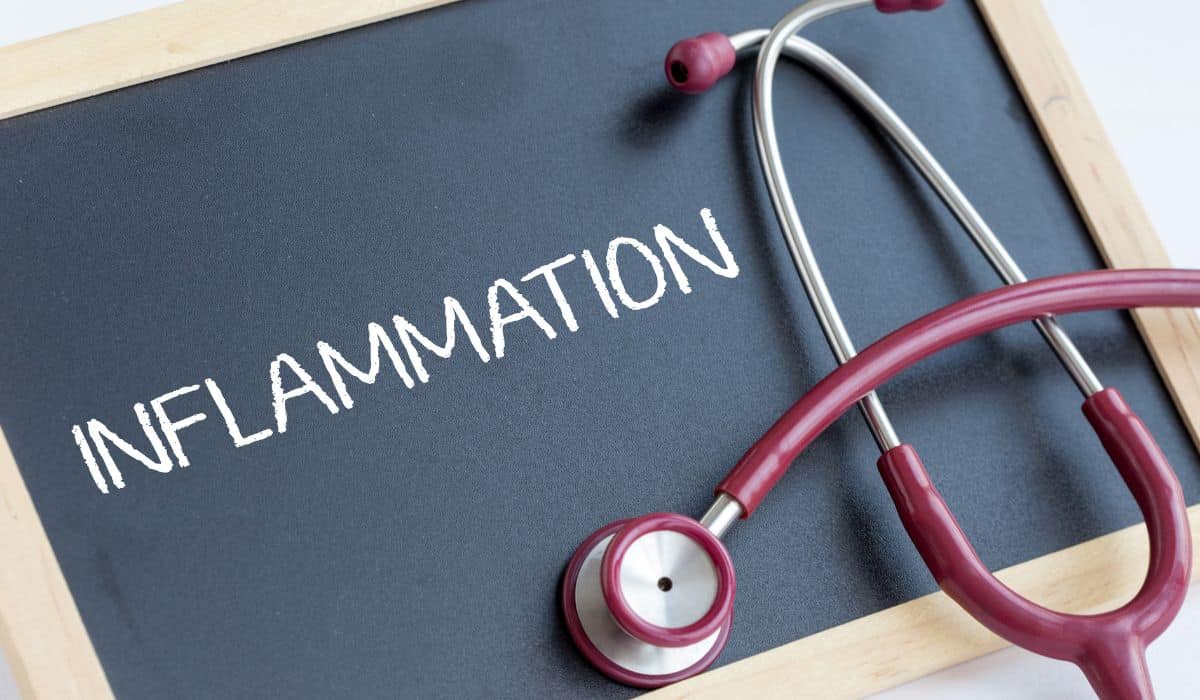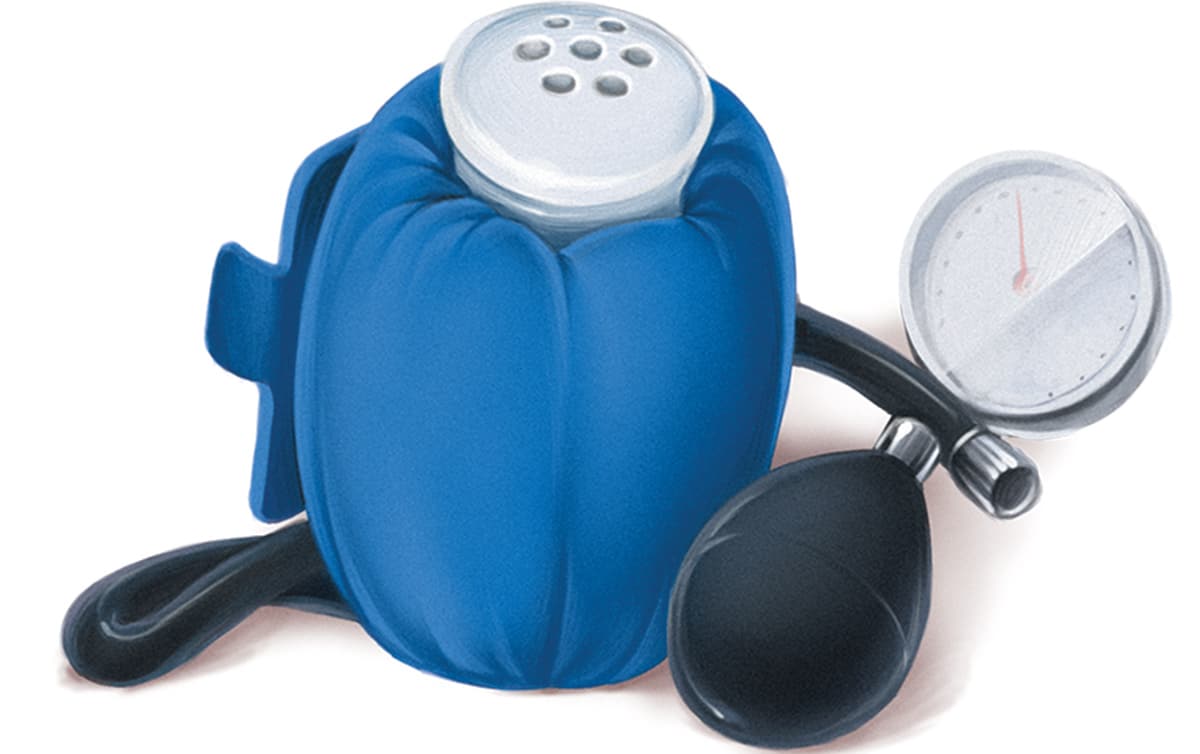
One of the big charges against dietary salt (sodium chloride, abbreviated NaCl) is that it’s inflammatory: salt supposedly contributes to inflammation, which adds to the problems of high blood pressure. But is it really? A high-salt diet is associated with higher levels of inflammation, but high-salt is often code for high-junk-food, which could be skewing the results. If you look at intervention trials with pure salt supplements instead of population studies where “salt” means “salty junk food,” a lot of them actually question the salt-inflammation connection.
(This article is about inflammation specifically, but if you want to read more about salt and Paleo in general, or salt and high blood pressure, you can do that right here)
If “Salt” = Junk Food, then Yes, Salt is Inflammatory
There’s plenty of evidence to suggest that a high-salt diet is associated with higher biomarkers of inflammation. High blood pressure, high sodium intake, and inflammation are all associated in population studies. Just to take one example, this study found that in teenagers, dietary sodium was associated with tumor necrosis factor alpha (one marker of inflammation) even after controlling for body fat percentage and sugar intake, but it wasn’t associated with C-reactive protein or intracellular adhesion molecule-1 (two other markers of inflammation). This study found that salt intake (as measured by sodium in the urine) was associated with inflammation in patients with primary hypertension.
But all these are associations. Associations don’t prove any kind of causal relationship. All they prove is that two things occur together. Dandelions and blueberries both grow in the summer, but that doesn’t mean one causes the other.
To prove that salt causes inflammation, you’d have to look at intervention studies where the scientists manipulated salt but kept everything else the same. Either you’d have to give the subjects more dietary salt and increase levels of inflammation like that, or you’d have to put them on a low-salt diet and show that it reduced inflammation. But that’s not actually what happens if you look at the studies.
Intervention Studies Don’t Show that Salt is Inflammatory
Intervention studies are studies where the researchers actually change something, instead of just measuring associations. These are the studies where people (or rats, or mice, or dogs…) get put on a high-salt or a low-salt diet to see what happens. If you’re unlucky enough to be a rat or a mouse eating a ridiculously high amount of salt, these studies show that you’re pretty much out of luck. But if you’re a human being eating an amount of salt that a human might reasonably actually eat, the results are a pretty resounding shrug.
For animal studies, a lot of the results look pretty bad for salt until you realize that the amounts of salt are completely extreme. If you feed a rat six times its normal intake of salt, the rat will gain fat mass (namely, not just water weight from fluid retention, actual fat mass). That level of salt makes fat cells more sensitive to insulin, so more glucose is stored in fat cells. The rats on that super-salted diet do develop higher levels of inflammation, but it’s not clear how relevant that actually is to humans who presumably aren’t eating extreme overdoses of salt.

For example, take a new study where supplemental salt at twice the recommended amount (which is theoretically a dose that a person might get) failed to change inflammatory markers at all. In this study, researchers gave subjects a standard diet with 2,400 mg of salt (which is the recommendation for healthy people with no special risk factors and no history of hypertension). Then they gave them either a placebo or a pill with 3,000 more mg of supplemental sodium. The supplemental salt didn’t change inflammatory biomarkers at all.
This study took the opposite approach: try people on a low-salt diet and see if it reduces inflammation. After 6 weeks of salt reduction, the researchers had to conclude that the low-salt diet didn’t have any effect on systemic inflammation. In fact, in another trial, researchers actually found that an ultra-low-salt diet increased inflammation. Oops.
This study did a similar thing, and the results also question the idea that the association demonstrates any kind of causal relationship between salt and inflammation. In the study, the researchers found that hypertension (high blood pressure) was independently associated with the inflammatory cytokine interleukin-6. But then they put hypertensive people and people with normal blood pressure on a low-salt diet and measured their IL-6 levels again. The low-salt diet didn’t actually change IL-6 levels at all.
If salt was causing inflammation, you’d expect supplemental salt to cause inflammation and a low-salt diet to reduce levels of inflammation, but that’s very clearly not what happens. Inflammation is associated with high blood pressure, but whatever is going on, it’s clearly more complicated than salt being the demon nutrient that causes both.
This is in Healthy People
All these studies were either in healthy people or in people who had hypertension but no other problems. They aren’t intended to prove anything about people who already have kidney diseases or other salt-related issues. Some people are also genetically more sensitive to salt - there's always a Your Mileage May Vary effect going on with this type of study, and if a low-salt diet works better for you personally (and especially if it's something your doctor told you to eat), this isn't an argument for going off it.
Summing it Up
A high-salt diet in free-living people is associated with inflammation and hypertension. But the problem is that a high-salt diet is often a high-junk-food diet, and junk food comes with so many more problems than just salt. When you look at studies in humans with pure salt (as opposed to the junk food it often comes in), that association really starts to look murky and questionable. Salty junk food might very well be inflammatory – nobody’s claiming that ramen noodles and Doritos are health food. But maybe we need to stop demonizing the salt specifically and look for something with more of a proven effect.
Ultimately, several intervention studies have really questioned the idea that salt per se increases inflammation in healthy people.





Leave a Reply